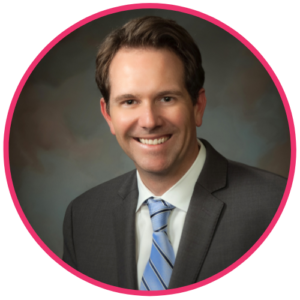
In a healthcare compliance setting, hearing difficult or negative feedback can be a regular occurrence. To handle tough feedback well, you need to have the ability to focus on the content of the message instead of the messenger, or the way the message is being conveyed.
If that sounds easier said than done, then consider the following five tips:
#1-Separate Emotion from Fact
It’s easy to let emotions cloud your judgment when receiving tough feedback. When it comes to any situation, there are facts – and then there are interpretations of facts. The trick becomes identifying which one you are basing your response on.
To handle tough feedback effectively, you need to separate the emotion behind the feedback from the actual facts. To do that, keep your state of mind grounded in curiosity and not judgment. This will allow you to evaluate the feedback more objectively.
#2-Seek Clarification from a Curious State of Mind, Not a Judgmental One
Related to the first strategy, if the feedback you’re receiving is unclear or ambiguous, then don’t hesitate to ask for clarification. Just make sure you do so from a state of mind rooted in curiosity and not judgment.
Keep in mind that when you’re receiving information, your state of mind will be felt by others. For example, if you’re bogged down in judgment, it will come across negatively as being defensive. On the other hand, if your state of mind is based on curiosity, it comes across positively as being focused on how to improve.
To maintain your focus on curiosity, seek specific examples or instances where you may have fallen short. Also, even with the toughest feedback, there is often a grain of truth that you can learn from. Search for that grain of truth instead of focusing on the negative.
#3-Embrace a Growth Mindset
Adopting a growth mindset is also crucial when handling tough feedback. Instead of viewing the feedback as a criticism of your abilities, see it as an opportunity to learn and grow.
To that end, don’t be afraid to reach out for support from colleagues, mentors, or friends during challenging times. Discussing the feedback with others can also provide valuable insights and perspective to help you grow professionally.
#4-Keep Your Focus on Solutions, Not the Problem
Rather than dwelling on the problem that is the subject of the feedback, shift your focus to finding solutions. Here, you want to brainstorm actionable steps you can take to address the feedback and make meaningful changes.
By taking this approach, you not only develop your critical thinking skills, but also build confidence by independently developing potential solutions.
#5-Reflect and Process
Finally, take time out to reflect on the feedback once your initial emotions have settled. Here, it’s very important to climb outside of your head and identify “the why” behind the feedback that was given and how you can use it to become better.
For some practical steps, you can set aside this time for personal reflection, journal, or discuss the feedback with a trusted mentor or friend. These can all be strategies to help you process the feedback more positively and effectively.
Receiving tough feedback can be hard on ones’ self-esteem, so practice self-compassion by reminding yourself that nobody is perfect and everyone makes mistakes. If you are passionate about your work, others will easily see that and you’ll have the capital to lighten up on yourself when you make a mistake.
Handling tough feedback is never easy, and quickly challenges your ability to remain professional. With the right mindset and approach though, it can be a powerful asset for your growth and development. Having this skillset will keep you from losing your cool. It also will help you earn the trust of your healthcare leaders, which will help you obtain that all important buy-in to your compliance program.

Download Jay’s Tip Sheet Below
Get the latest from healthcare compliance experts
Never miss an article from Jay Anstine. Sign up for YouCompli’s weekly email if you haven’t already.
Jay is a compliance professional and consultant in Colorado. Jay is a healthcare lawyer with significant industry knowledge of the U.S. healthcare market. Over the past 20 years, he has worked for large for-profit and non-profit health systems and small physician-owned entities. In tackling the countless regulatory and operational issues for these diverse organization types, he has developed a deep understanding of the business of healthcare and the regulations governing the industry. In 2018, Jay became an adjunct faculty member with the University of Southern California, Gould School of Law, designing and teaching healthcare compliance courses.
Jay obtained his law degree from the University of South Dakota, where he focused on healthcare law. From 2012-2016, he served on the Board of a non-profit organization serving the medically underserved in Colorado (ClinicNET). He is also a member of the Health Care Compliance Association (HCCA), serving on the planning committee for the Mountain Regional Conference since 2008. He is writing a series of articles on compliance culture for the YouCompli blog. This post looks at building trust among your colleagues. This post looks at measuring your organization’s culture of compliance.
Qualified compliance professionals do the heavy lifting for you, simplifying regulatory change management
Our in-house team works tirelessly to monitor U.S. regulators, carefully read the regulations in their entirety, and translate the information into simple regulatory intelligence you can use. We deliver model procedures and expert tools that can be used to fulfill your business requirements. Everything is validated by a third-party law firm. Follow the button below to get a tour of our healthcare compliance software.


